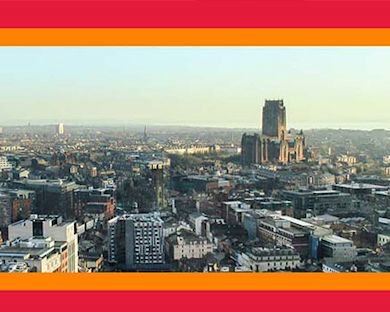- Berita & artikel
- Acara kami
- Kunjungi kamiIDP AustraliaIDP BahrainIDP BangladeshIDP CambodiaIDP CanadaIDP ChinaIDP EgyptIDP GhanaIDP Hong KongIDP IndiaIDP IranIDP JordanIDP KenyaIDP KoreaIDP KuwaitIDP LebanonIDP MalaysiaIDP MauritiusIDP Middle EastIDP NepalIDP New ZealandIDP NigeriaIDP OmanIDP PakistanIDP PhilippinesIDP Saudi ArabiaIDP SingaporeIDP Sri LankaIDP Taiwan, ChinaIDP ThailandIDP TurkeyIDP UAEIDP VietnamIDP Corporate
- Media sosial
- Bahasa Indonesia
Topik yang Dibahas
- Published: 21 October 2022
/p>
Silent Letters
Silent letters are very tricky because we do not say the letter when we say the word, but it is there when we write it. Some common silent letters are:
K
know/knew
knife
knight
knee
knock
N
autumn
column
condemn
B
climb
debt
doubt
subtle
thumb
D
bridge
fridge
knowledge - also a silent k
handsome
sandwich
H
hour
ghost
what/when/where/why
character
echo
Vowels
Vowels (a,e,i,o,u,y) can be difficult in some words because they can take on different sounds. The most common sound in the English language is the schwa sound /ə/. The schwa sound can be spelled using any of the vowels. This can make it difficult when choosing the correct vowel to spell a word. Here are some examples:
A: company /kəmpənē/
E: system /sistəm/
I: family /faməlē/
O: political /pəlitikəl/
U: product /prädəkt/
Y: analysis /ənaləsis/
Double Consonants
Double consonants are difficult because some words contain more than one set of double consonants.
accommodate
embarrass
occurrence
successful
possession
Some words only contain one set of double consonants.
harassment
personnel
disappear
recommend
tomorrow
It's hard to distinguish between the two because some of the words sound similar. There are also words that do not have double consonants, but we want to add them.
preferable
coliseum
labeled
Ough
Learning to spell can become very frustrating when words that have the same group of letters all sound different when pronounced. The sound ‘ough’ is one of these examples. Here are the different pronunciations of ‘ough’:
Ough = /uhf/
Example
roughOugh = /ou/
Example
plough
Ough = /oo/
Example <>through
Ough = /oh/
Example
though
thorough
Ough = /of/
Example
cough
Homophones and Homographs
Homophones are words that sound the same but have a different meaning or spelling.
Examples
flower/flour = /flouer/
to/too/two = /too/
clothes/Close = /klohz/
Homographs are words that are spelled the same but are pronounced differently.
Examples
bow = /bou/
bow = /boh/
lead = /leed/
lead = /led/
When words are pronounced the same, it can be difficult to know which spelling to use in what context. On the other hand, it is also difficult to know words that have completely different meanings could possibly be spelled the exact same way.
Pronunciation vs. Spelling
Finally, there are some words that are spelled opposite to how they are pronounced. These words can be the most difficult to spell. Here are some examples:
indict = /indahyt/
bologna = /buhlohnee/
manoeuvre = /muhnoover/
foreign = /forin/
colonel = /kurnl/
mortgage = /morgij/
island = /ahyluhnd/
queconscience = /konshuhns/
zucchini = /zookeenee/
Spelling can be very difficult for some test-takers, especially when English vocabulary originates from many different languages. It also has so many words that are ‘an exception to the rule’. All of this, plus vocabulary changing over the years, can cause learning to spell overwhelming. However, mastering the skill of spelling can benefit you on the IELTS test because it is counted on the listening, reading, and writing portions of the test.
Satu akun untuk semua kebutuhan studi Anda di luar negeri
Buat profil Anda dan buka beragam fitur termasuk rekomendasi yang dipersonalisasi, aplikasi yang dilacak dengan cepat, dan masih banyak lagi.

Book your IELTS test
Watch the story of lifelong dreams, passion and determination that truly reflects the journey of our IELTS test takers. IELTS is the breakthrough to a world of full of incredible.
Search for articles
Dive into our extensive collection of articles by using our comprehensive topic search tool.















